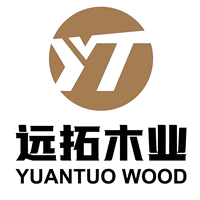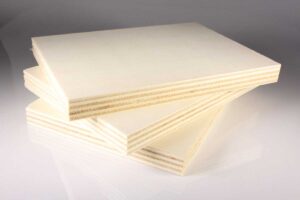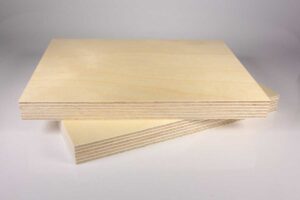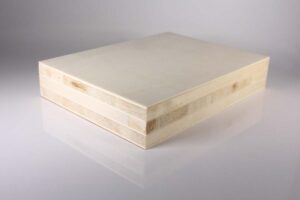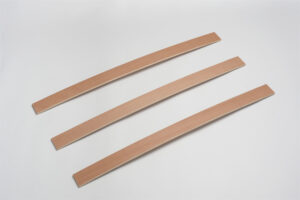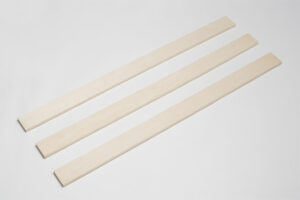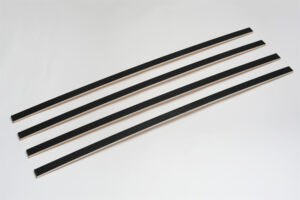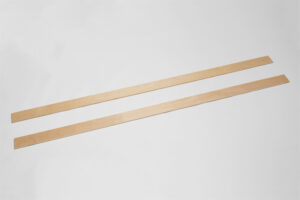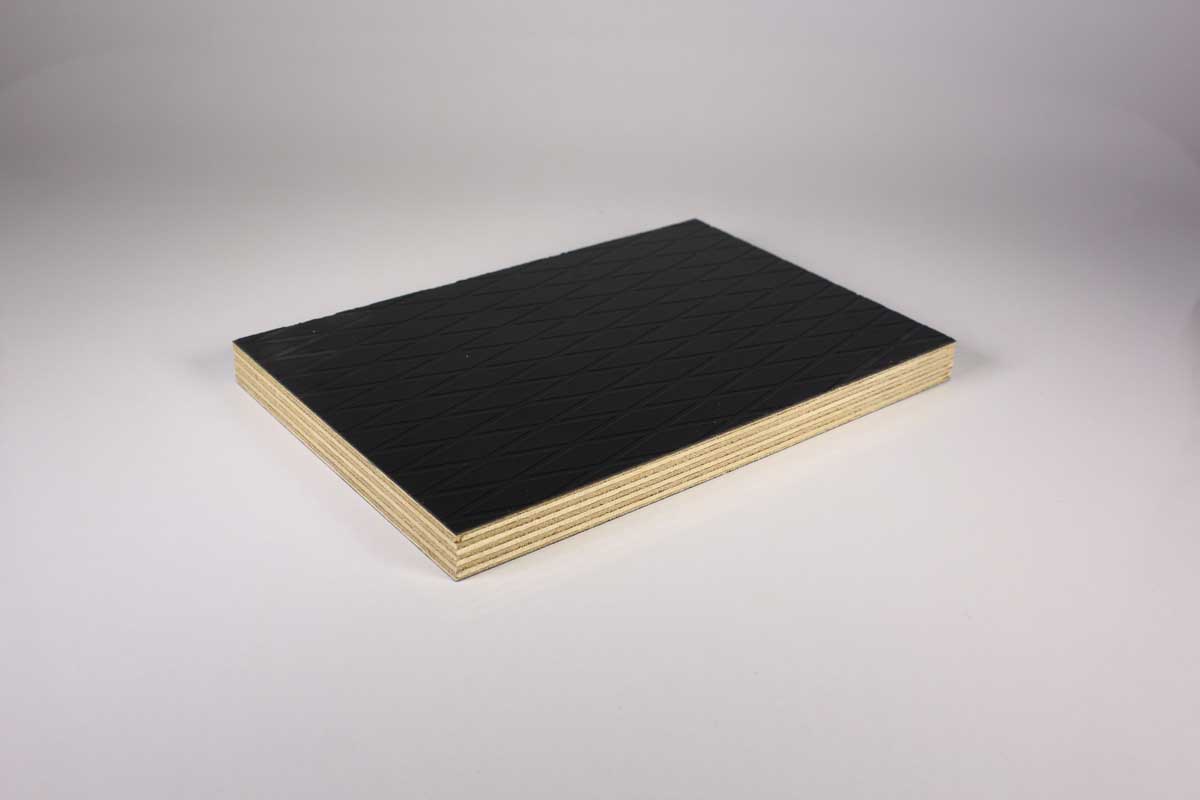
Construction Plywood
Construction plywood: the strong and versatile solution for your building needs! Crafted from cross-grained wood veneers, it delivers exceptional strength, dimensional stability, and resistance to warping. Ideal for structural framing, subflooring, sheathing, and countless DIY projects. YuanTuo Wood offers premium construction plywood in various thicknesses and grades, ensuring a perfect fit for your project. Build with confidence, build to last!
Customization
Tailor products to meet your specific requirements.
Manufacturing
Consistent, durable products crafted with advanced techniques.
Logistics
Ensuring timely delivery to our clients worldwide.
share this product
Product Description
In the realm of construction and building materials, where strength, durability, and versatility reign supreme, construction plywood has emerged as an indispensable component of countless projects. Celebrated for its exceptional structural integrity, ease of use, and wide range of applications, construction plywood has become a cornerstone material for builders, contractors, and DIY enthusiasts alike. This comprehensive guide will delve into the intricacies of construction plywood, exploring its composition, properties, advantages, and why YuanTuo Wood stands out as a premier provider of this essential building material.
What is Construction Plywood?
Construction plywood is an engineered wood panel meticulously crafted by adhering multiple thin layers of wood veneer together with strong, moisture-resistant adhesives. These layers, known as plies, are strategically arranged with their grain directions rotated at 90-degree angles to each other. This cross-graining technique is the secret behind plywood’s remarkable strength, stability, and resistance to warping or twisting, making it significantly stronger and more reliable than solid wood.
The manufacturing process begins with carefully selected logs that are peeled into thin sheets of veneer using specialized machinery. These veneers are then dried to a specific moisture content and graded for quality, ensuring that only the finest veneers are used in the plywood manufacturing process. The veneers are then layered with adhesive and bonded together under carefully controlled heat and pressure, resulting in a large, flat sheet of plywood with consistent thickness and exceptional strength properties.
Understanding Construction Plywood: Key Features
| Feature | Description |
| Core |
Poplar/Birch/Pine etc.
|
| Face Film |
Black, Brown, Dynea film, other colors are available, smooth, anti-slip, Marineplex, Hexa pattern, Fanera, etc.
|
| Dimensions |
1220*2440/ 1830*915 etc.
|
| Thickness | 5mm-30mm |
| Glue |
MR, WBP Melamine, Phenolic UF
|
| Certificate | FSC/ CARB P2 |
Applications of Construction Plywood
The versatility of construction plywood is truly remarkable, finding its way into a vast array of construction projects, both large and small. Its ability to provide structural integrity, a smooth work surface, and resistance to warping and moisture have made it an indispensable material for:
-
Structural Framing: Construction plywood plays a critical role in structural framing, serving as sheathing for walls, roofs, and floors. It provides essential structural support, distributing loads evenly and offering a solid nailing surface for attaching siding, roofing materials, and flooring. Its strength and dimensional stability make it an ideal choice for creating a robust framework for residential and commercial buildings.
-
Subflooring: Creating a stable and level foundation is crucial for any flooring installation, and construction plywood excels as a subfloor material. It provides a smooth and durable base for various flooring options, including hardwood, tile, vinyl, and carpet. Its ability to span joists and resist deflection ensures a long-lasting and problem-free flooring system.
-
Wall Sheathing: Exterior walls are subjected to wind loads, impact, and the elements, requiring robust sheathing to maintain their structural integrity. Construction plywood acts as a protective skin, adding strength and rigidity to the wall assembly while providing a nailing surface for exterior cladding materials like siding, brick veneer, or stucco.
-
Roofing: In roofing applications, construction plywood serves as a reliable underlayment, providing a smooth and durable surface for attaching shingles, tiles, or other roofing materials. Its strength and moisture resistance are crucial for protecting the building’s structure from the elements, preventing leaks, and ensuring the longevity of the roof.
-
Concrete Formwork: Construction plywood’s strength, durability, and smooth surface make it an ideal material for concrete formwork. It’s used to create temporary molds that hold and shape concrete as it cures, ensuring smooth and accurately formed concrete structures, from foundations and walls to columns, beams, and other architectural features.
-
DIY Projects: The versatility of construction plywood extends beyond large-scale construction projects. It’s a favorite material for DIY enthusiasts and homeowners tackling a wide range of projects, including building shelves, cabinets, furniture, workbenches, treehouses, and other home improvement endeavors. Its affordability, ease of use, and availability make it a go-to choice for creative projects around the house.
-
Packaging and Shipping: The strength and durability of construction plywood make it an ideal material for creating robust and lightweight crates, boxes, and pallets for transporting goods. Its ability to withstand impact and moisture helps protect valuable cargo during shipping and handling, ensuring that products arrive at their destination in good condition.
Advantages of Using Construction Plywood
Construction plywood’s enduring popularity in the construction industry can be attributed to its numerous advantages over alternative materials. These benefits make it a cost-effective, efficient, and reliable choice for a wide range of applications:
-
Exceptional Strength and Durability: The cross-graining technique employed in plywood manufacturing imparts exceptional strength and resistance to warping, cracking, and impact. This makes it significantly stronger than solid wood, especially when subjected to bending or racking forces, making it suitable for demanding structural applications.
-
Dimensional Stability: Unlike solid wood, which can expand and contract with changes in moisture content, plywood exhibits excellent dimensional stability. This means it is less likely to warp, cup, or twist over time, ensuring the long-term performance and integrity of the structures it’s used in, reducing the likelihood of costly repairs or replacements.
-
Versatility: Construction plywood is available in a wide array of thicknesses, sizes, and grades, making it adaptable to diverse project requirements. Whether you need a structural panel for a roof, a smooth surface for cabinetry, or a moisture-resistant option for exterior applications, there’s a plywood product to suit your needs.
-
Cost-Effectiveness: In many instances, construction plywood offers a more cost-effective solution compared to solid lumber, especially for large-scale projects. Its affordability, combined with its strength and versatility, makes it a budget-friendly choice without compromising on quality, allowing builders to maximize their construction budgets.
-
Sustainability: Plywood is manufactured from a renewable resource – wood – and many manufacturers are committed to responsible forestry practices. Choosing plywood from sustainably managed forests contributes to environmental conservation efforts, reducing deforestation and promoting the long-term health of our planet’s forests.
-
Ease of Installation: Construction plywood can be easily cut, shaped, and fastened using standard woodworking tools, making it a user-friendly material for both professionals and DIY enthusiasts. Its large sheet size also helps speed up installation time, reducing labor costs and accelerating project timelines.
-
Smooth and Paintable Surface: Plywood offers a smooth and consistent surface that readily accepts various finishes, including paint, stain, varnish, and veneer. This makes it easy to achieve the desired aesthetic for your project, whether it’s a rustic farmhouse look or a sleek modern design.
Construction Plywood vs. Other Building Materials
| Material | Advantages | Disadvantages |
|---|---|---|
| Construction Plywood | Strong, durable, versatile, cost-effective, sustainable, readily available, smooth and paintable surface | Susceptible to moisture damage if not properly treated or sealed, may require additional finishing for some applications |
| Oriented Strand Board (OSB) | Affordable, consistent quality, readily available, manufactured from fast-growing trees, suitable for some structural applications | Lower strength and stiffness than plywood, rougher surface, less aesthetically appealing, not ideal for applications requiring a smooth finish |
| Medium Density Fiberboard (MDF) | Smooth surface, consistent density, takes paint well, made from recycled wood fibers, suitable for furniture and cabinetry | Not as strong as plywood, susceptible to moisture damage, not suitable for structural applications, can sag or warp over time if not properly supported |
| Solid Lumber | Natural beauty, high strength in one direction, traditional building material, can be milled to specific dimensions | Expensive, prone to warping and cracking, requires careful selection and grading, labor-intensive to install, susceptible to moisture damage and insect infestation |
Why Choose YuanTuo Wood for Your Construction Plywood Needs?
At YuanTuo Wood, we understand that the success of your construction projects hinges on the quality of the materials you use. That’s why we’re committed to providing our customers with premium construction plywood and exceptional service to meet their specific needs:
-
Premium Quality Products: We source our wood veneers from sustainably managed forests and utilize state-of-the-art manufacturing processes to produce plywood that consistently meets or exceeds the highest industry standards. Our rigorous quality control measures ensure that every sheet of plywood leaving our facility meets our stringent specifications for strength, durability, and performance.
-
Wide Selection: We offer a comprehensive range of construction plywood options to cater to diverse project requirements. Choose from various wood species, thicknesses, sizes, and grades to find the perfect plywood solution for your specific application, whether it’s structural framing, subflooring, sheathing, concrete formwork, or other construction needs.
-
Unwavering Commitment to Sustainability: We recognize the importance of environmental responsibility and are dedicated to sustainable forestry practices. By sourcing our wood from responsibly managed forests, we contribute to the long-term health of our planet’s forests and minimize our environmental footprint, ensuring that future generations can enjoy the benefits of this valuable resource.
-
Exceptional Customer Service: Our team of knowledgeable and experienced professionals is committed to providing personalized support and guidance throughout your plywood selection process. We take the time to understand your project requirements and help you choose the right plywood products to ensure your project’s success, answering your questions, providing technical expertise, and ensuring your satisfaction.
-
Competitive Pricing: We strive to offer competitive pricing and flexible solutions to fit your budget. Our goal is to provide our customers with the highest quality plywood at the best possible value, making your construction projects both successful and cost-effective, without compromising on quality or service.
Frequently Asked Questions (FAQ)
1. What type of plywood is best for exterior use?
For exterior applications where the plywood will be exposed to the elements, it’s crucial to choose plywood with an “Exposure 1” rating. This type of plywood is specifically manufactured using moisture-resistant adhesives and is designed to withstand rain, humidity, and temperature fluctuations without compromising its structural integrity. It’s commonly used for exterior sheathing, soffits, fascias, and other applications where moisture resistance is paramount.
2. Can I use construction plywood for furniture making?
While construction-grade plywood is primarily intended for structural applications, it can be used for furniture making, especially for projects where strength and durability are paramount. However, for a more refined look, consider using higher grades of plywood, such as those with a sanded face or hardwood veneers. These options offer a smoother surface that’s ideal for painting or staining, providing a more aesthetically pleasing finish for furniture pieces.
3. How do I protect plywood from moisture?
Protecting plywood from moisture is essential for ensuring its longevity, especially in exterior applications or areas prone to humidity. Apply a high-quality sealant or paint to all surfaces of the plywood, including edges, cut ends, and any drilled holes. The sealant or paint acts as a barrier, preventing moisture from penetrating the wood and causing damage. For applications where the plywood will be in direct contact with water or ground, using pressure-treated plywood is highly recommended. Pressure-treated plywood is infused with preservatives that protect it from rot, decay, and insect infestation, making it suitable for use in ground contact or other high-moisture applications.
4. What is the difference between CDX and sanded plywood?
CDX plywood is a construction grade plywood with a rougher surface. It’s typically used for structural applications where appearance is not a primary concern, such as sheathing, subflooring, and roofing. The “C” and “D” ratings refer to the quality of the plywood’s face veneers, with “C” being a higher grade than “D.” Sanded plywood, on the other hand, has a smoother surface, making it suitable for projects where a more finished look is desired, such as cabinetry, furniture, and decorative applications. Sanded plywood is typically sanded on one or both sides to remove imperfections and create a smooth, paintable surface.
5. How do I determine the correct plywood thickness for my project?
Determining the appropriate plywood thickness for your project depends on several factors, including the specific application, the load requirements, and any applicable building codes. For structural applications, it’s crucial to consult building codes or a qualified structural engineer to determine the correct plywood thickness and span ratings to ensure the structural integrity of your project. The span rating refers to the maximum distance a piece of plywood can span between supports without excessive deflection or failure. Using the correct thickness and span rating is essential for ensuring the safety and longevity of your construction project.
Conclusion
Construction plywood stands as a testament to the ingenuity of engineered wood products, offering an exceptional combination of strength, versatility, and reliability for a wide range of construction needs. Its ability to withstand demanding conditions, its ease of use, and its sustainable nature have solidified its place as a cornerstone material in the construction industry, trusted by builders, contractors, and DIY enthusiasts alike. By choosing high-quality construction plywood from a reputable supplier like YuanTuo Wood, you can be confident in the long-term performance and success of your building projects, knowing that you’re using a material that delivers exceptional value, durability, and sustainability.
